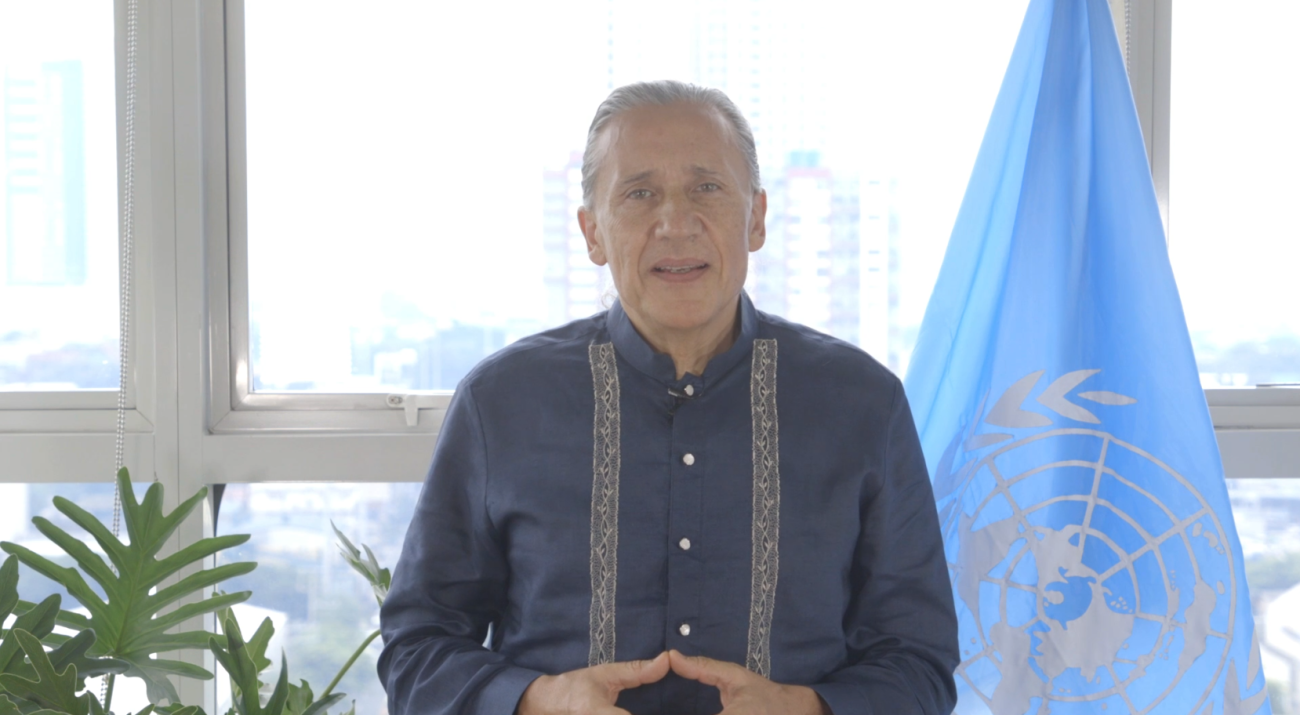UN Philippines chief affirms, migration should be a choice not a necessity

Mr. Gustavo Gonzalez congratulates the Philippines for putting “migrants’ rights” at the center of the development agenda of the country.
The text of the UN Resident Coordinator Gustavo Gonzalez's message at the Migration Policy Seminar of the Philippines Department of Foreign Affairs follows:
Dear government representatives, development partners and colleagues,
First of all, I would like to congratulate the Department of Foreign Affairs for organizing this “Migration Policy Seminar”.
The initiative reflects, one on side, the strong commitment of the Philippines in the implementation of the Global Compact on Migration and, on the other side, the centrality of “migrants’ rights” in the overall development agenda of the country.
The recent “State of the Nation Address” conveyed by President Marcos Jr, was very clear on migration issues.
The improvement of welfare of Overseas Filipino Workers was placed as a priority. This includes investment in their families to ensure that the benefits of migration can be maximized.
And the UN will support this development priority, as it follows the spirit of the Global Compact on Migration.
As you know, the “Global Compact for Safe, Orderly and Regular Migration” represents a major investment of the international community to transform how we understand and manage migration.
To make of migration a source of prosperity, not a byword for inhumanity.
It is in this context that the UN Secretary General launched the “United Nations Network on Migration” to mobilize the full extent of our capacities and expertise to support Member States -the Philippines- in advancing the implementation of the Global Compact on Migration.
The Network immediately set up a “Capacity Building Mechanism”, including a “Migration Network Hub” and also a “Multi-Partner Trust Fund”, which is presently supporting the Philippines through the “BRIDGE UN Joint Programme”.
So the UN is equipped and ready to assist the Government in its “migration” priorities, including institutional support to the Department of Foreign Affairs and the emerging Department of Migrant Workers.
In the short term, we see two opportunities for enhanced cooperation with the Philippines:
One is the preparation of the upcoming “Philippine Development Plan”, that will cover the period 2023-2028. This is a unique opportunity to mainstream the 23 objectives of the Global Compact on Migration across the new development agenda.
The second opportunity is the formulation of our new cooperation framework with the Philippines. We will start this process in the coming months in close consultation with the Government, civil society, private sector, academe, youths, LGUs, amongst other players.
Working with the Department of Foreign Affairs, the Sub-Committee on International Migration and Development (SCIMD) and the Department of Migrant Workers will be critical.
We also expect making the most of the ongoing UN Joint Programme “Bridging Recruitment and Reintegration” to better address the migration priorities of the new administration.
As UN Resident Coordinator and Chair of the UN Network on Migration, I reaffirm our commitment to achieving “safe, orderly and regular migration” where migration is a choice, rather than a necessity.”
Dear partners, I wish you great success in this Seminar.
Thank you


